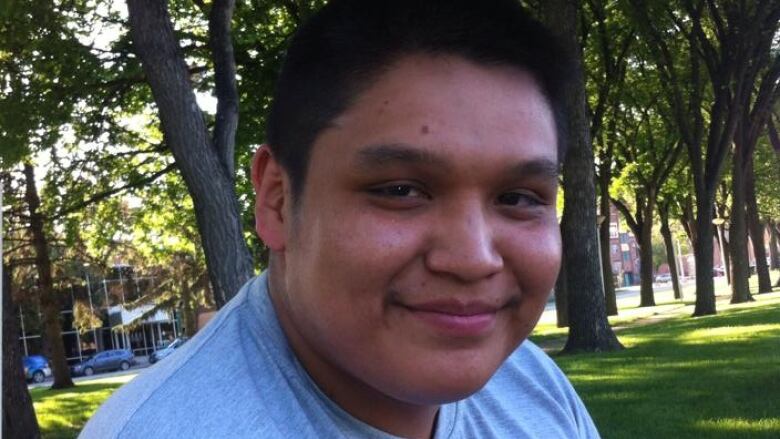Errol Greene 'would have been more protected' if given medication on day he died, specialist tells hearing
Dr. Alexei Yankovsky treated Greene's epilepsy from 2011 to September 2015

An epilepsy expert who treated Errol Greene told an inquest into the man'sdeath that while Greene didn't always take his medication regularly, he would have been "more protected" from the seizure that led to his death if it had been given to him while he was in custody.
Dr. AlexeiYankovsky, whotreated Greene from 2011 until September 2015,was thethird person to testify at the inquest into Greene's death.
The 26-year-old died on May 1, 2016 after having two seizures while in custody at the Winnipeg Remand Centre.
Yankovsky testified that having two seizures within 45 minutes, as Greene did, was significant and a major concern.
The neurologistsaid hetreated Greene until he was admitted to the Health Sciences Centre for a week of further observation related tohis epilepsy in September 2015. He saidGreene didn't show up to a follow-up appointment he had scheduled two months later.
Yankovskysaid Greene was prescribed to take valproicacid an anti-seizure medication three times a day.
Greene's widow, RochellePranteau, testified on Monday the first day of the inquest that Greene told her over the phone that he was not given his medication during the nearly two days he was in the remand.
The hearing was also toldthat Greene last took his medication the morning of April 29.
Yankovskysaid if Greene had been given his medication within 24 hours of his last dose, he "would have been more protected."
An autopsy report found that Greene had significantly low levels ofvalproicacid in his system at the time of his death.
Yankovskytestified that levels of the drug in the system can drop quickly if not takenregularly.
Court also heard evidence that Greene did not always take his medication as prescribed.
Lawyer Sean Boyd, who represents the province and Manitoba Justice, brought up evidence that Greene only filled his 30-day prescription twice in the six months before his death.
He said according to theDrug Program Information Networkanonlinedatabase that connects pharmacies and Manitoba HealthGreene's prescription was filled October 2015 and March 2016.
Staff training recommended
Greene was arrested on April 29, 2016 for drinking alcohol, a breach of hisbail conditions for a mischief charge from a month earlier.
Yankovsky testified alcohol can affect a person with epilepsy in four ways.
It can affect the absorption of valproicacid, he said.
As well, an intoxicated person, or someone who drinks frequently, can forget to take their medication.
He alsosaid excessive drinking can sometimes cause seizures, andthat withdrawal from alcohol can cause a seizure in someone who drinks regularly and abruptly stops.
At the end of the testimony, Judge Heather Pullan asked the doctor if he had any recommendations. His first was that a system be established that would allow someone to quickly check a person's diagnosis and what medications they take.
He also recommended training for remand centre staff on how to administer Ativan, which can be used as an emergency medicationto stop a seizure.
Three staff from the remand centre are scheduled to testify on Wednesday, including two nurses and the head correctional officer at the centre the time of Greene's death.
Testimony at the inquest is expected to last 15 days.













_(720p).jpg)


 OFFICIAL HD MUSIC VIDEO.jpg)
.jpg)



























































































